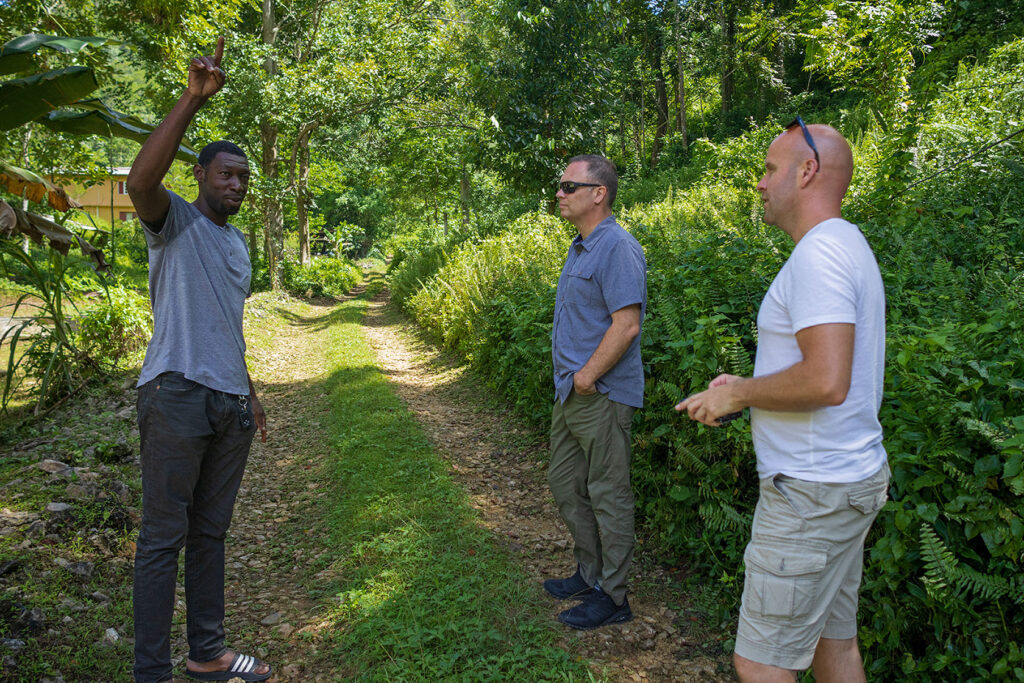The business world is different from the vocational ministry world in several ways. Most pastors and missionaries understand this, and we’re fine with the differences. In fact, we probably even like the differences and think they are good.
But we’re often caught off guard when the differences between the business world and ministry world surface during the hiring process. For example, at some point in the process, ministry interviews will often involve one’s spouse, which can initially strike people as odd. Almost no one has his or her spouse interviewed in the business world; it’s probably against the law for most occupations. And to be blunt, interviews for jobs in ministry can be very invasive; they get all up in your business—on purpose.
These differences startled me during seminary when I began interviewing for pastoral jobs. During the interview process with one church, the pastors of the new church visited my home for a meal. They met my entire family and even saw my laundry room during a tour of our house. People talk about “airing dirty laundry” as a metaphor, but we inadvertently did it literally. Trust me, this never happened during my former career as a mechanical engineer.
It’s not just pastors who can be caught off guard during the interview process; it happens to missionaries as well. This surprise is especially acute for missionaries called into ministry as a second career. Consider how surprising it might be to interview with an agency if all of your previous experience was in education. School districts have standardized hiring processes. You submit your resume, do a few interviews with the administration, perhaps teach a mock class, and then you are either hired or you’re not. The process of interviewing in missions tends to meander.
Three Common Surprises
Let me mention in more detail three of the biggest surprises when interviewing for a role in ministry.
The first surprise is the slowness of the process. It takes a long time—a loooonnngg time—to be hired in ministry. I have a friend in our church who works in accounting. Sadly he lost his job a few years ago. After he found a new job and began working at it, my friend remarked to me how slow he thought everything went. It only took him a month to lose his job and find a new one! That would be lightning fast in the ministry world. From the moment a potential missionary makes first contact with an agency to the time he or she is on the field will take many, many months, perhaps even a year or two.
The second surprise is the involvement of one’s spouse. I realize not every pastor or missionary is married, but if you are, be assured that your spouse will be interviewed too. And that’s a good thing even when it’s a difficult thing. Missions is hard enough with a great marriage of two people called and committed to the task. Think about how much more difficult it would be if there is pre-existing marital stress.
A third surprise is the invasiveness of ministry interviews. Mission agencies will want to know about your personal finances, whether you’ve had a struggle with pornography or alcohol, and what you like to do in your free time. Again, this is a good thing. Much more goes into the calling and commissioning of a missionary than a love for the lost. It’s not less than this, but it is more. God wants missionaries who have high competency and character. At our church, when we invite a potential lay-elder to join our team, we spend significant time in our elder meetings for six months reading over the requirements of eldership in passages such as 1 Timothy 3. This leads us into all sorts of conversations with the potential elder about his temperament and theology, his home life and hospitality. We do this not simply for the health of the church, but also for the health of the elder candidate because, at the end of the process, we want the affirmation of our church to mean something to him. While a mission agency doesn’t have the luxury of dragging this conversation out over a dozen meetings, it will want to spend significant time probing your character.
Keep Your Identity in the Gospel
It seems like blog posts with catchy titles and practical tips make the best viral posts. You know what I mean, articles with titles like, 7 Interview Hacks to *Crush* Your Next Ministry Interview. But I don’t want to write that kind of post. And I’m not even sure we should aspire to crush a ministry interview anyway.
Instead, I’d rather end by pointing you to something better, something more sturdy than interview hacks: the gospel. The good news of the grace of God is what will sustain you through the slowness of a job search because you’ll know that, regardless of any temporary setbacks, God loves you. And the gospel will allow you to welcome pointed questions to your spouse and about your character because you know that for those in Christ, we have nothing in our past or present that is not covered by his grace.
If you’re like most people, your life will be full of transitions, perhaps some to a mission field and some off of a mission field. Transitions offer us an opportunity to reaffirm that the defining reality of our lives is not found in our marital status or our number of children, our income or our vocation, our looks or our popularity. Our defining reality isn’t outward or inward but upward: Jesus Christ loves me and gave himself for me. The apostle Paul put it this way: “It is no longer I who live, but Christ who lives in me. And the life I now live in the flesh I live by faith in the Son of God, who loved me and gave himself for me” (Galatians 2:20). As you go through interviews, resolve to do what Paul did through all the transitions in his life: anchor your identity in the love of God for you.
Editor’s Note: If you’d like more information on the best ways to approach looking for a job in ministry, consider Benjamin Vrbicek’s new book Don’t Just Send a Resume: How to Find the Right Job in a Local Church.




